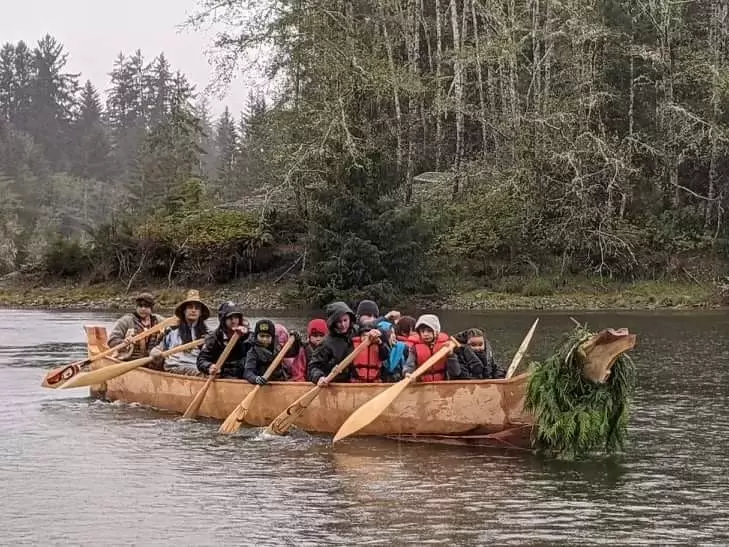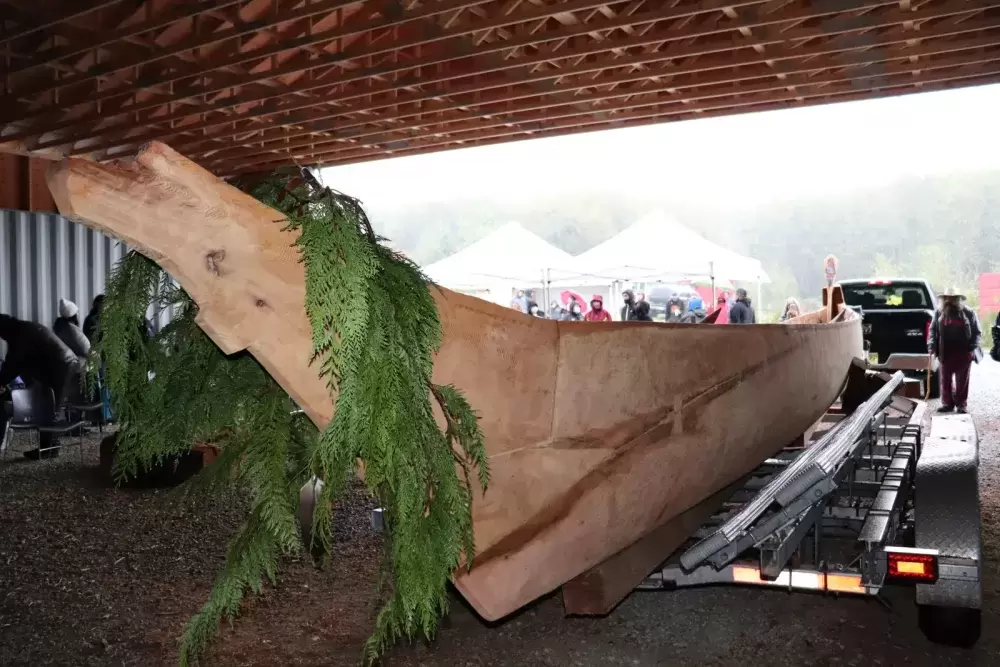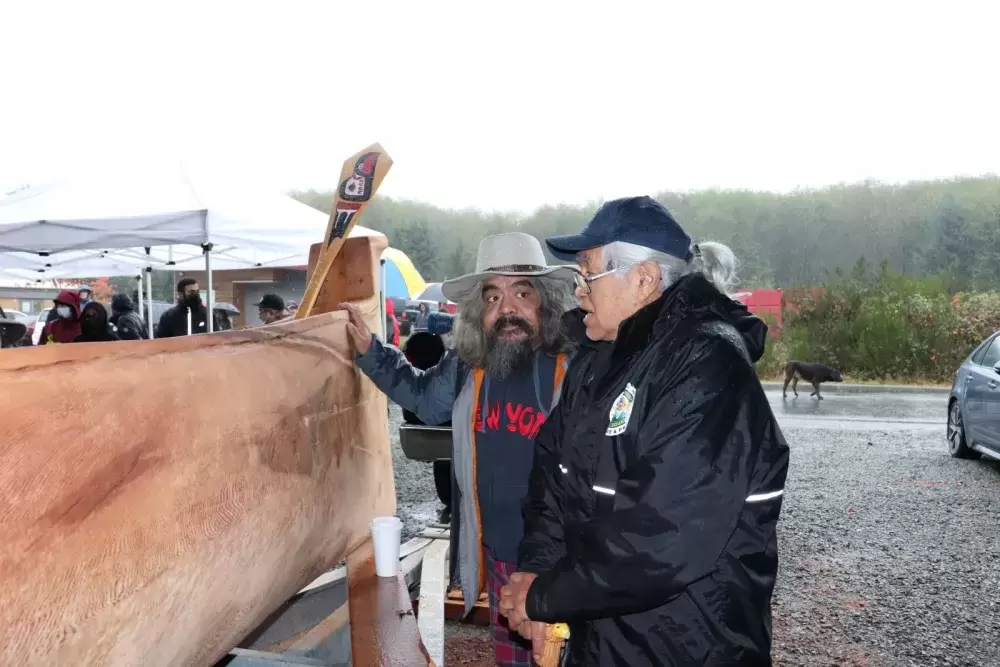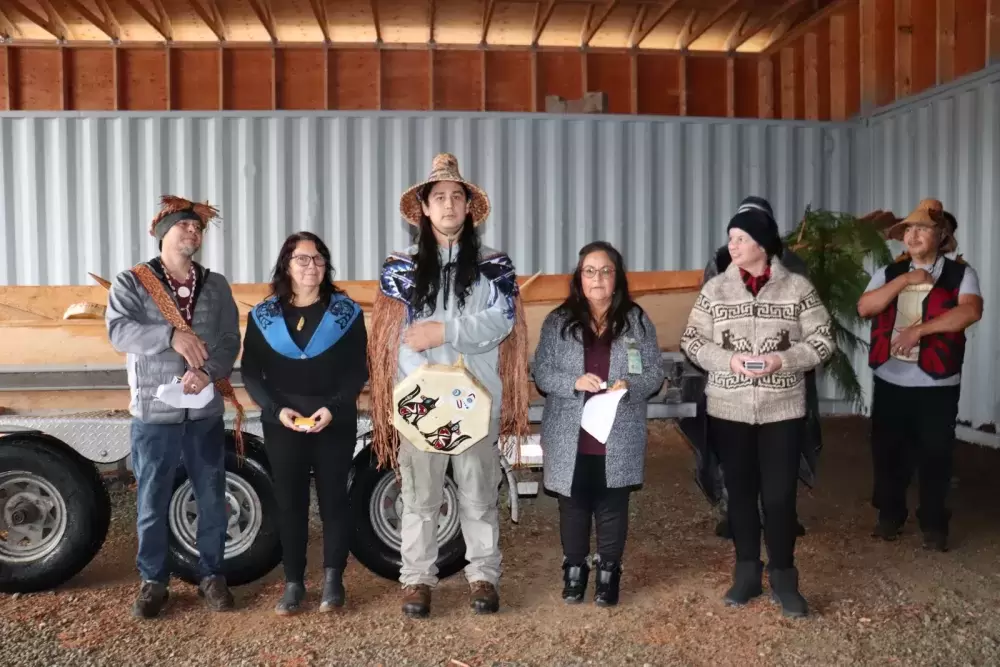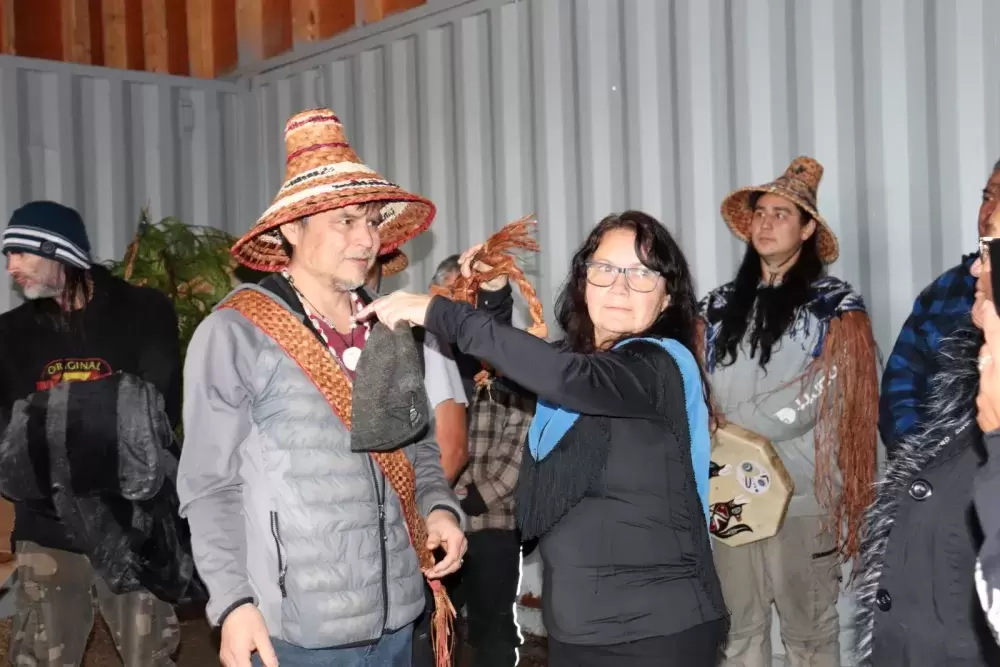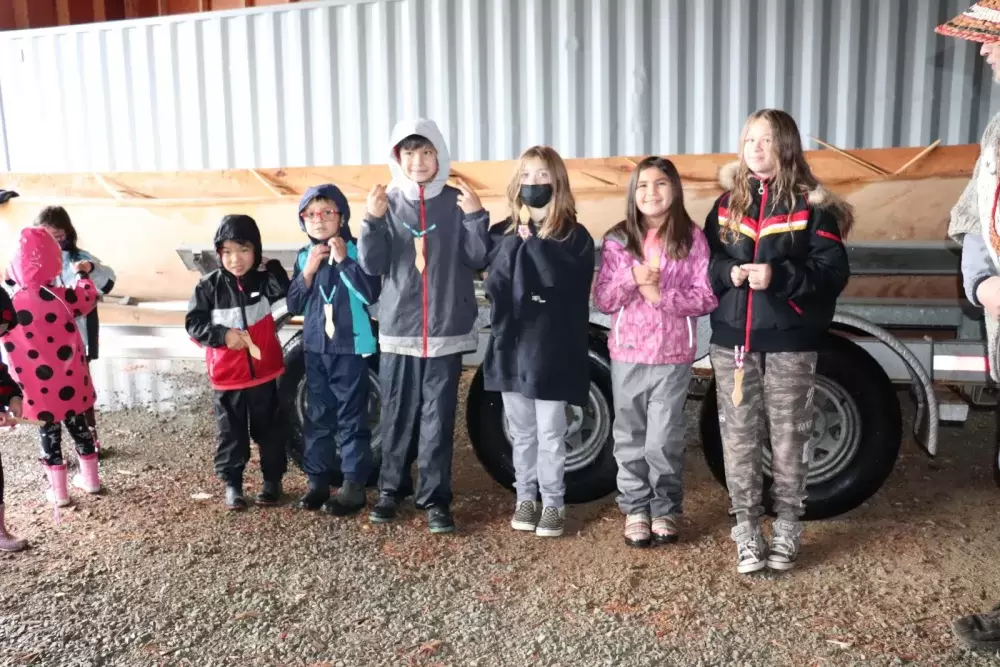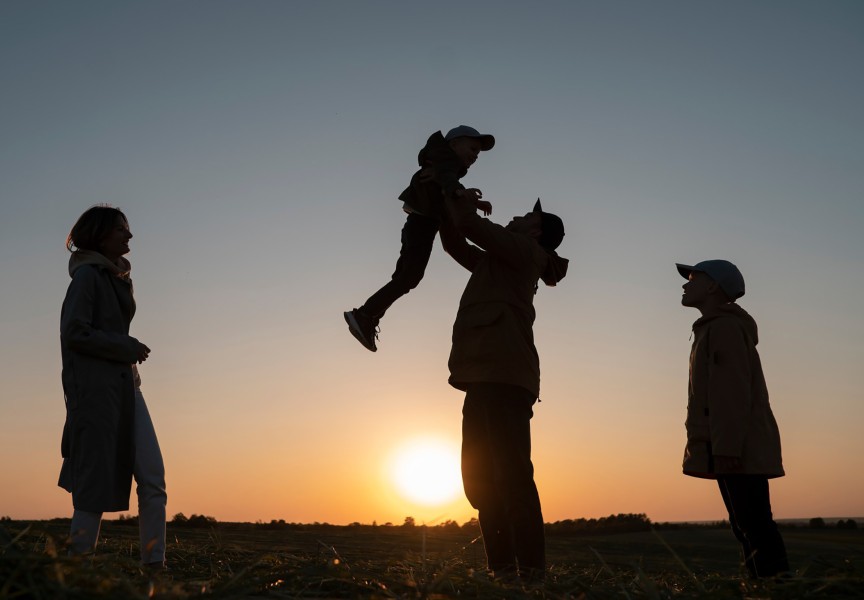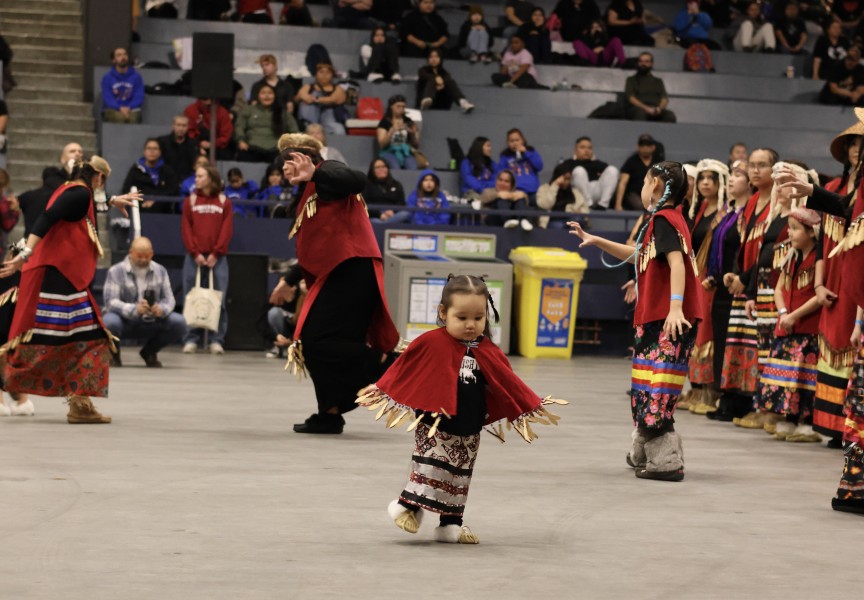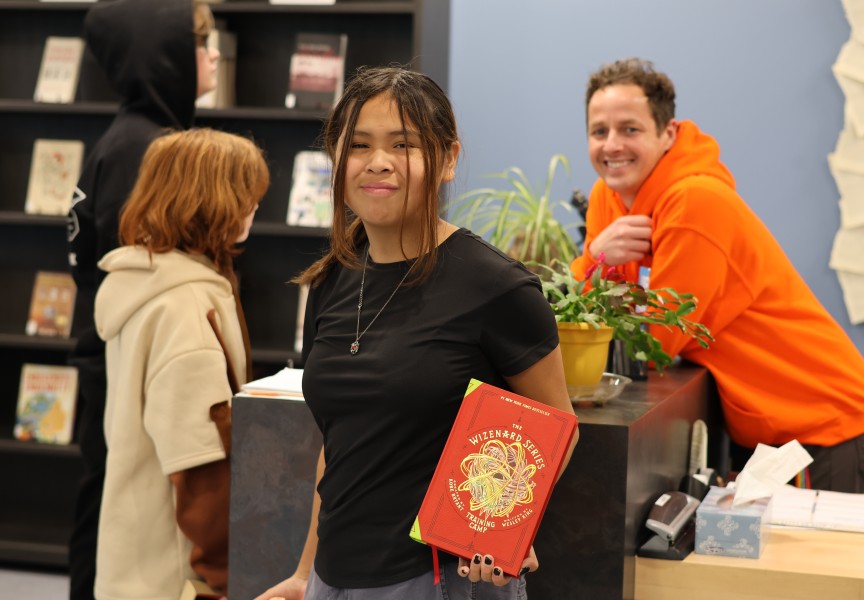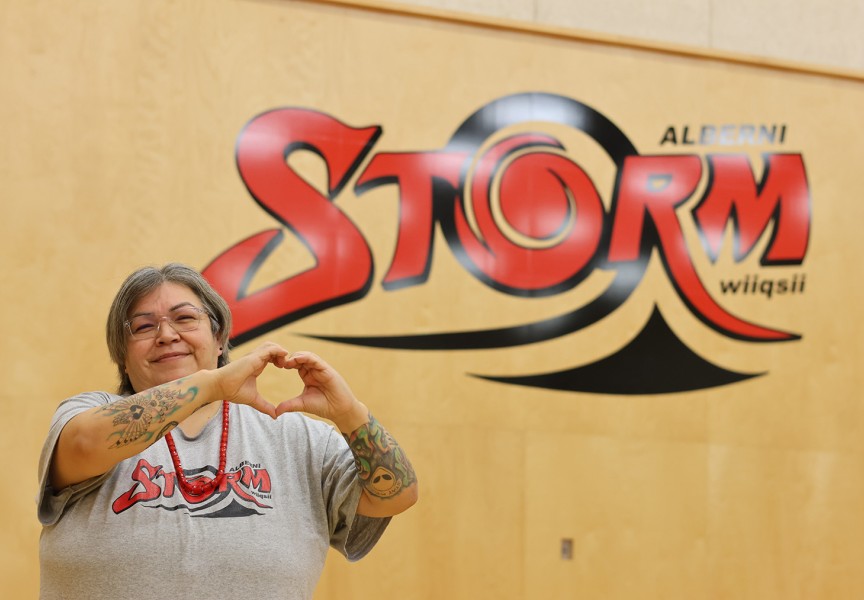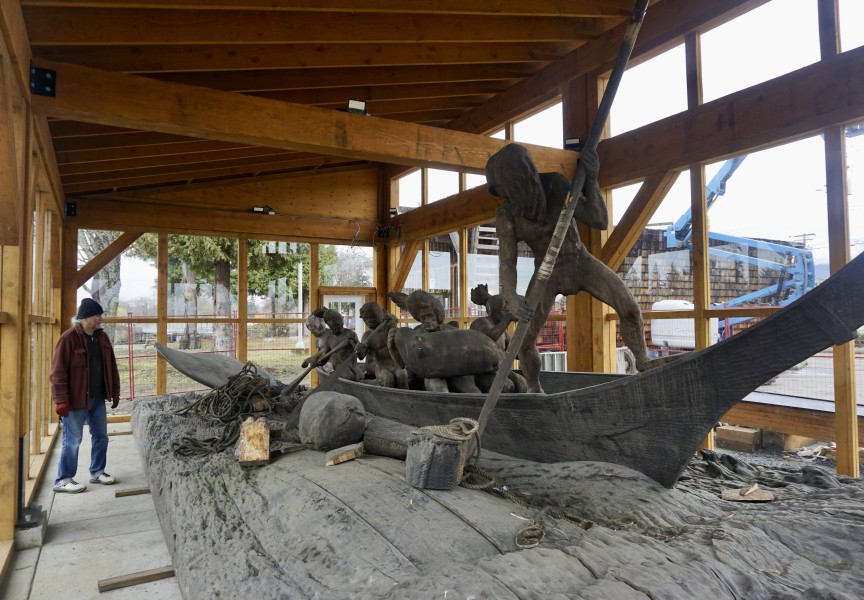It was a proud moment for Pacheedaht members as they witnessed the blessing and launch of the first community carved canoe in nearly 70 years, according to PFN elder Bill Jones. He recalled the names of four elders that made the last canoe in the 1950s or 60s.
PFN Hereditary Chief Charlie Queesto Jones made another dugout canoe under contract with retired researcher Eugene Arima in the early 1970s, but that one left the community when it was completed. It is on display in a Tofino-area museum. Born in 1876, Chief Charlie was nearly 100 years old when that canoe was made.
This canoe project brought together two young Pacheedaht men under the mentorship of Makah master carver Micah McCarty to build a canoe from start to finish in just a few months. The project was made possible through a $200,000 grant from the Social Sciences and Humanities Research Council of Canada, which also funded other cultural revitalization initiatives for the Pacheedaht First Nation.
The project got a start as a vision of PFN “elder-in-training”, as she calls herself, Leona Canute. From there, Roxy Jones, former Pacheedaht Health Director, went to work applying for grants. With funding in place and a partnership with the University of Victoria, PFN was set to build their first canoe.
The work not only involved making the canoe, but also cultural teachings. With support from their Ditidaht relatives they began weekly cultural classes, learning language, singing and dancing as well as paddle carving, shawl making and more.
It was a cultural immersion project that involved the entire community and one that fostered pride in being Pacheedaht, people of the sea foam.
Chief Councillor Jeff Jones told the crowd that the old growth red cedar log was harvested from Pacheedaht territory. Through a partnership with Cowichan Community Forest, it was cut and hauled to their village. In June 2021, McCarty and his two Pacheedaht apprentices began hollowing out and shaping the giant log.
The blessing ceremony took place Oct. 28, under the cover of a carving shed as a drenching autumn rain pounded down on the roof. The air was filled with the aroma of fresh-cut cedar as excited community members gathered around the still unpainted chaputs (dugout canoe).
People came from neighboring Ditidaht First Nation, as well as Victoria and Port Renfrew residents came to witness the historic occasion. An elder from Quatsino came down from the nearby Fairy Creek encampment to see the canoe and to pray for its safety on the water.
Elected chief Jeff Jones introduced Pacheedaht Hereditary Chief Frank Jones, as he welcomed the guests on the chief’s behalf. The power was out in Port Renfrew that day as a fallen tree knocked down power lines in Jordan River.
“Some people drove over those power lines to get here to celebrate the creation of this chaputs.” said Jeff Jones, adding that it was an exciting project celebrating unity.
Phillip Edgar and other Ditidaht relatives led the cultural business associated with the proper blessing of the new chaputs. That started by offering ta’ilthma (support) to those that recently lost loved ones and also to the Tyee Ha’wilth, Frank Jones, who survived a recent car accident.
“We do this because we care for these people, we are glad you are still here – we love you,” he told them.
PFN Councilor Tracey Charlie told the carving crew that she admired their determination and dedication to a project that saw the rough old growth cedar log transform to a chaputs in just a few short weeks.
“I am honored to be part of this project,” said master carver Micah McCarty.
He told the crowd that his journey in Pacheedaht was inspired by something he saw on the west coast Highway leading south from Port Renfrew. From there, on a clear day, you can see across Juan de Fuca Strait to Neah Bay, home of the Makah.
McCarty said the sunlight shone in a way that it reflected off the lighthouse near his homeland.
“It reminded me of the ties we’ve always had, the cultural and family ties,” said McCarty.
He told the crowd that his grandmother came from Pacheedaht and married into Makah, making the people of Pacheedaht his cousins. And so, it was important for him to help keep the culture alive by sharing his knowledge and skills with his family.
“We’re enshrining something as we bring her to life,” said McCarty of the chaputs.
Many gifts were exchanged ahead of the blessing ceremony. One included the children, who, at times, helped with the canoe. They were called up to receive hand-crafted paddle necklaces.
“That’s who this (chaputs) is for,” said Jeff Jones.
He spoke of the teachings that came from the canoe project - and the canoe itself - being a gift from this generation to future generations of Pacheedahts.
McCarty spent several months away from his wife and five children to lead the project. He had to spend some time in quarantine due to the pandemic before he arrived in Port Renfrew to begin working on the log.
He mentored Trystan Dunn-Jones and Trent Jones, whom he said had an instinct for the work. McCarty said it wasn’t long before they figured some things out on their own and sometimes got things done before he had a chance to go check their work.
Sheila Jones completed her final Child and Youth Care university practicum in her home territory over the summer, working with youth and coordinating many of the cultural activities. She assisted with the chaputs and youth activities. Part of that was beadwork done on eagle feathers harvested from a carcass donated by conservation officers.
Residents worked on beading the feathers and they were gifted to people who helped with the chaputs project.
Finally, with heavy rain still pouring down, Ditidaht singers drummed while Pacheedaht members brushed the chaputs with cedar branches, blessing it. The canoe was trailered down to the river where it was taken on its maiden voyage, filled with people of all ages.
A scheduled totem pole raising was postponed out of respect for Huu-ay-aht First Nation, who were in mourning and not available that day. The totem pole, gifted to Pacheedaht from Huu-ay-aht, will take place at a later date.

